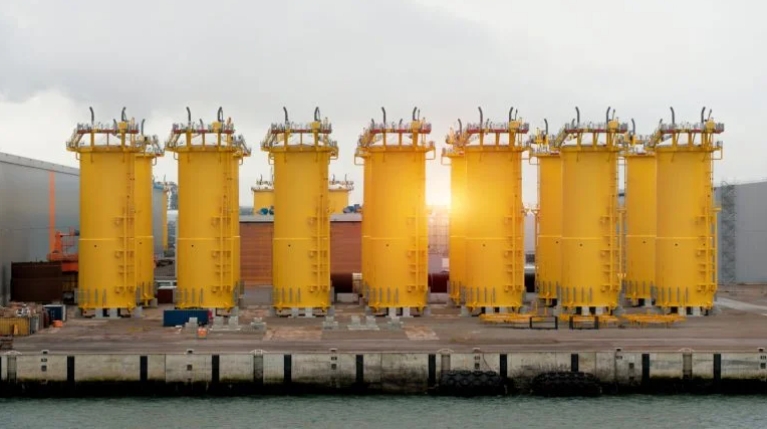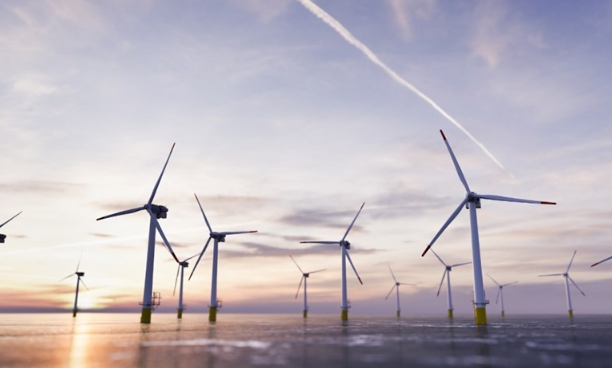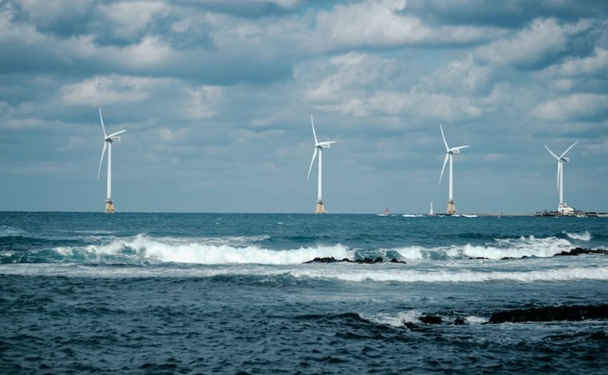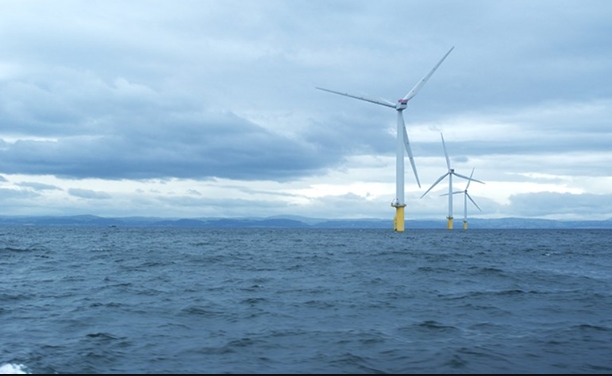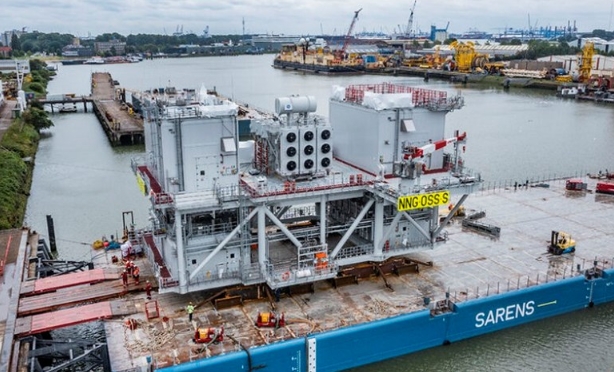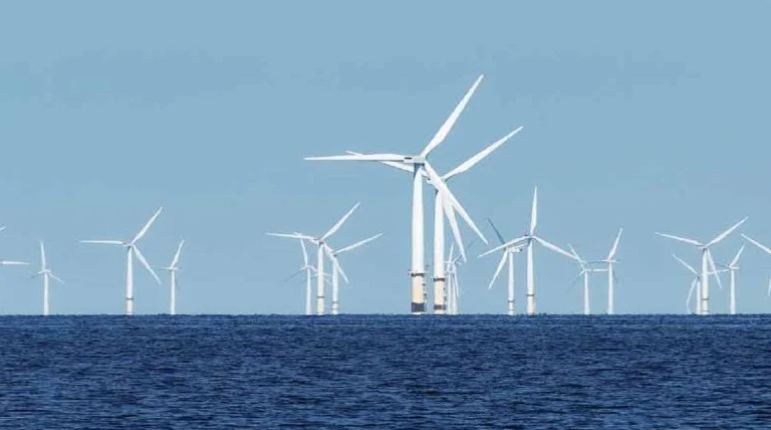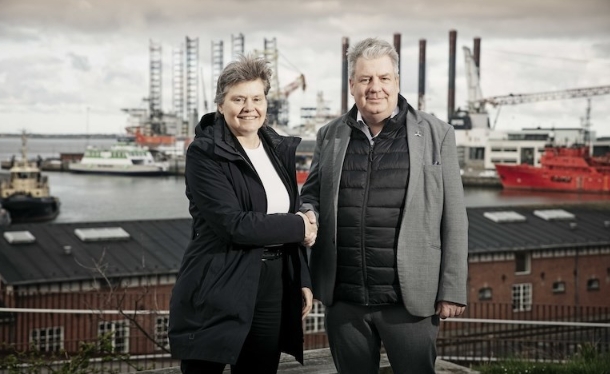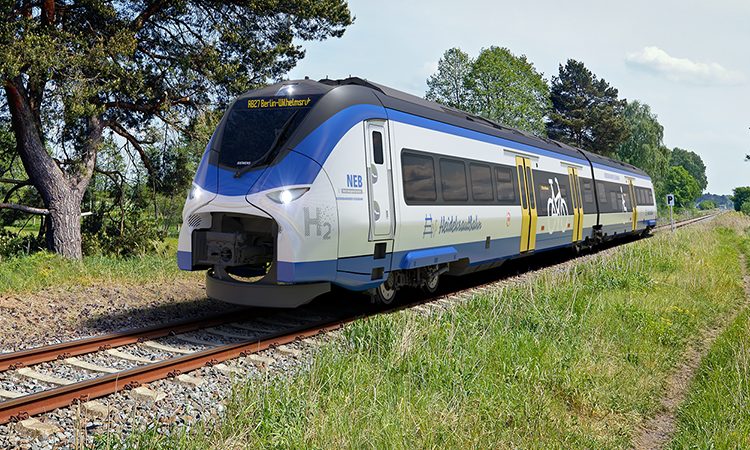
Siemens Mobility has been commissioned by Niederbarnimer Eisenbahn (NEB) to deliver seven, two-car Mireo Plus H trains for the Heidekrautbahn network (RB27) in the Berlin-Brandenburg metropolitan region. Equipped with a fuel cell drive system and a lithium-ion battery, this second-generation hydrogen train provides completely CO2 emission-free mobility.
“We are especially proud that our first order for a fleet of hydrogen-powered trains will also enable emission-free rail transport on non-electrified routes,” Michael Peter, CEO of Siemens Mobility, said. “Our Mireo Plus H is a next-generation hydrogen train that combines innovation with sustainability. Thanks to its long range, faster acceleration, and state-of-the-art technologies, it will set new standards in zero-emission passenger transport.”
“We are proud to operate the Heidekrautbahn, the first rail network in the Berlin-Brandenburg region that will be using hydrogen fuel cell trains,” Detlef Bröcker, CEO of Niederbarnimer Eisenbahn, said. “With Siemens Mobility, Niederbarnimer Eisenbahn has an experienced and reliable partner at its side. The highly innovative hydrogen-powered trains are not only environmentally friendly, but also provide modern equipment and features tailored to the needs of our passengers. Moreover, the manufacturer’s direct involvement in maintaining the trains will ensure a high level of security regarding train availability. By operating a technologically and ecologically upgraded railway, we want to actively support the energy and transportation transition and make local public transport for commuter service and tourism more attractive.”
The Mireo Plus H is a highly advanced, second-generation hydrogen train featuring a hydrogen-powered traction system with 1.7 MW of traction power providing up to 1.1 m/s2 acceleration and a top speed of 160km/h. In addition, the train has the lowest lifecycle costs on the market and can be refuelled in just 15 minutes. The Mireo’s energy-saving and environmentally friendly design is based on its self-supporting, welded, and integral lightweight aluminium construction. The train’s improved aerodynamics together with its energy-efficient components and intelligent electrical system management also help reduce emissions and the use of resources.
The two-car trains feature comfortably designed, spacious interiors. Passengers benefit from free Wi-Fi, dynamic real-time displays of passenger information, a specially designated family area, and two multi-purpose areas with generous space for buggies, wheelchairs and up to twelve bicycles. The powered cars have three doors on each side that enable passengers in wheelchairs or with buggies to easily board or exit the train, even on lower platforms. A new signage design in the cars also facilitates speedy, uncomplicated and, above all, barrier-free passenger exchanges.
The order placed with Siemens Mobility also includes a ten-year service and spare parts contract (TSSSA) up to 2034. Siemens Mobility will thus ensure the availability of the trains over the entire term of the transport contract. The service contract not only covers the provision of all necessary maintenance, servicing, and repair activities, but their continuous further development and adaptation to the customer-specific use of the trains operating on the Heidekrautbahn.
The use of hydrogen-powered trains on the Heidekrautbahn is part of a scientifically supported joint pilot project funded by the federal government and the states of Berlin and Brandenburg. The project is focused on setting up a regional, sustainable hydrogen infrastructure that also includes a hybrid power plant and a tank system. All train operations on the RB27 line are to be carried out exclusively with green, meaning regenerative and regionally produced, energy. By switching from diesel to hydrogen, Heidekrautbahn will reduce its annual CO2 emissions by around three million kilos and save 1.1 million litres of diesel.
